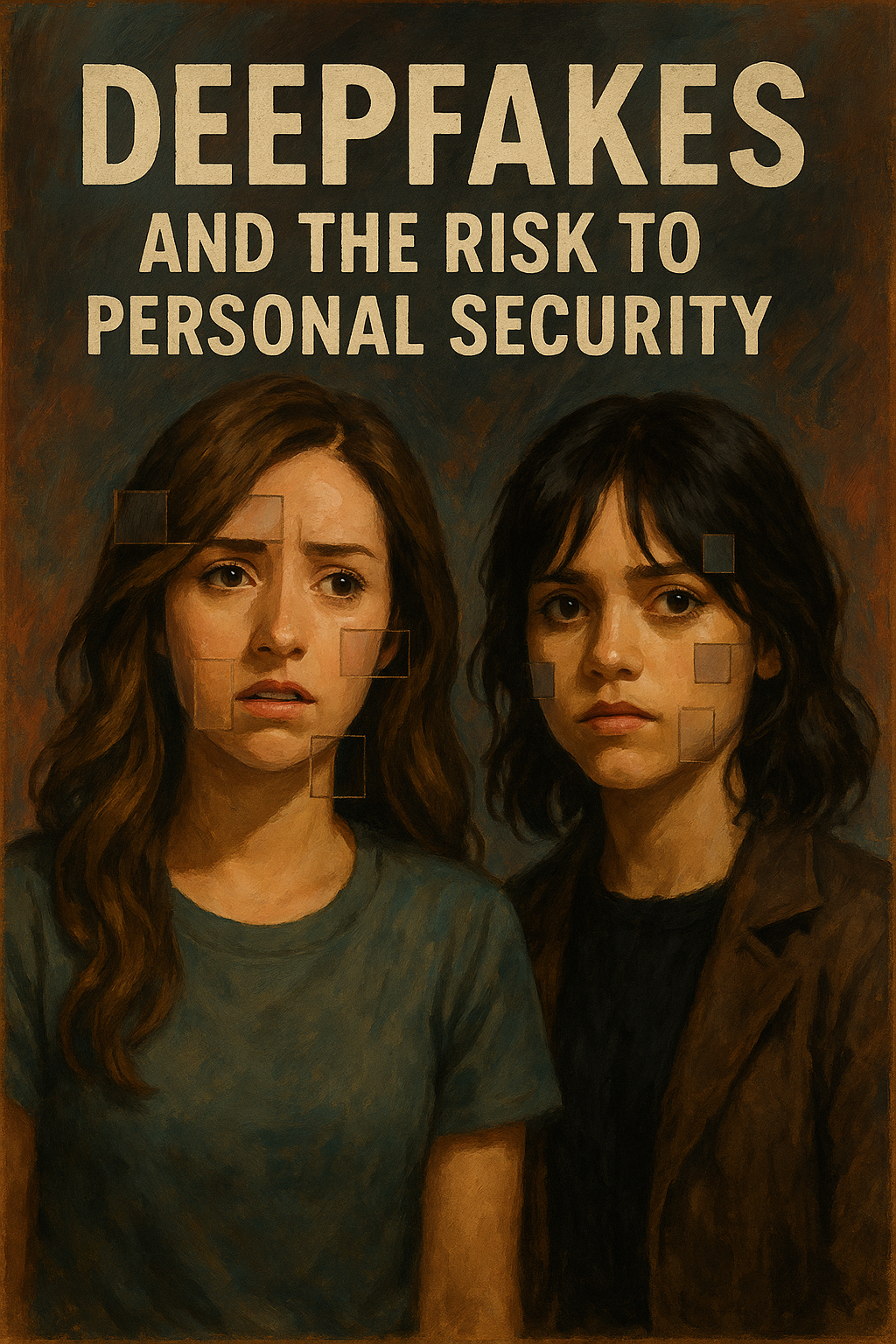In an era where AI can mimic voices, faces, and even entire personalities, deepfakes have gone from fun party tricks to one of the most dangerous tools threatening personal security. What began as a novel experiment in machine learning has now evolved into something far more sinister—capable of disrupting reputations, manipulating public perception, and endangering individuals’ safety. Two names recently caught in this digital crossfire are Pokimane and Jenna Ortega. The rise in Pokimane deepfake and Jenna Ortega deepfakes not only raises eyebrows but serious cybersecurity alarms.
Let’s break down what’s happening here—and why it’s not just about celebrities, but about all of us.
What Are Deepfakes, Really?
At their core, deepfakes are AI-generated media—images, videos, or audio—that convincingly replicate real people doing or saying things they never did. These are made using deep learning algorithms like GANs (Generative Adversarial Networks) and are often trained on hours or thousands of images of a person to get the likeness just right.
While deepfakes have legitimate applications in film, entertainment, and accessibility, their dark side casts a much longer shadow—especially when used without consent. This isn’t science fiction anymore. We are already living in a world where your digital identity can be copied, remixed, and weaponized.
The Pokimane Deepfake Scandal: A Real Cybersecurity Threat
Pokimane, a popular streamer and content creator, found herself at the center of controversy when deepfake videos of her surfaced online—graphic, fabricated, and deeply invasive. She hadn’t consented to these, and yet her likeness was manipulated into compromising situations for clicks and profit.
The Pokimane deepfake incident isn’t just about violation of privacy—it’s about cybersecurity. Why? Because identity theft no longer needs to rely on phishing emails or stolen credit cards. With deepfakes, your face becomes the vulnerability. Imagine someone using your face to unlock facial recognition systems, scam family members through manipulated voice or video calls, or generate fake content that ruins your career. That’s not a dystopian scenario; it’s a very real risk.
Cybersecurity professionals are now looking beyond passwords and phishing to a more nuanced battlefield: digital identity protection. For influencers like Pokimane, the implications are massive. Her digital presence is her brand, and deepfakes directly attack her credibility and safety.
Jenna Ortega Deepfakes: The Illusion of Consent
Actress Jenna Ortega, best known for her recent roles in “Wednesday” and other high-profile projects, has also been victimized by deepfakes. The Jenna Ortega deepfakes making the rounds on social media aren’t just invasive—they’re designed to deceive. Some are pornographic, others political, and some simply bizarre. But all of them share a common flaw: they are entirely fake, yet disturbingly convincing.
From a cybersecurity standpoint, Jenna’s case highlights another dimension of the threat: amplification via social platforms. Deepfakes don’t just exist in dark corners of the internet—they are distributed through TikTok, Twitter (X), Reddit, and even Facebook, where algorithms can’t always tell real from fake.
When deepfakes go viral, they can cause real psychological damage, not just to the subject but to the people who trust what they see. This erodes trust in digital media, a fundamental problem for cybersecurity practitioners trying to validate identity and verify authenticity online.
The Bigger Problem: Deepfakes for Harassment, Scams, and Blackmail
While Pokimane and Jenna Ortega are high-profile examples, the deepfake threat extends far beyond celebrities. With minimal computing power and free tools, anyone can now create a deepfake. That opens the door to a chilling array of cyber threats:
- Impersonation scams: Deepfakes can simulate a CEO asking for a money transfer. This has already happened in the UK, where an energy company was tricked into wiring $243,000 due to a voice deepfake.
- Harassment and revenge porn: As with Pokimane and Jenna Ortega deepfakes, malicious actors use deepfakes to produce fake adult content of individuals, often as a form of coercion or humiliation.
- Misinformation and election interference: Imagine a deepfake of a political figure announcing fake policy decisions or endorsing false narratives. The chaos this could sow is unimaginable.
All of these are critical cybersecurity concerns. They challenge the very idea of “truth” online.
Why Traditional Cybersecurity Measures Fall Short
Traditional cybersecurity tools—antivirus software, firewalls, endpoint protection—aren’t designed to combat deepfakes. That’s because deepfakes aren’t malware or code-based exploits; they’re social engineering on steroids. This is where behavioral biometrics, AI-based detection systems, and proactive monitoring come into play.
Startups and research labs are working on deepfake detection algorithms that can spot inconsistencies in pixelation, blinking patterns, or audio modulation. But as detection improves, so does generation. It’s an arms race. And unlike a virus, the psychological and reputational damage from a deepfake can’t just be “cleaned up” with a patch.
What Can Be Done?
The fight against deepfakes requires a mix of tech solutions, legal frameworks, and public awareness. Here’s what the cybersecurity world is pushing for:
- AI Detection Tools: Integrate deepfake detectors into social platforms and authentication systems. Services like Microsoft’s Video Authenticator and Sensity AI are leading the charge here.
- Watermarking and Media Provenance: Initiatives like the Content Authenticity Initiative aim to track the origins of images and videos, providing a kind of “digital DNA” for media.
- Stronger Legislation: Many countries still lack clear laws against deepfakes. Cybersecurity professionals are pushing for policies that penalize the creation and distribution of malicious deepfakes—especially those involving non-consensual content.
- Digital Literacy: Teach people how to question what they see. Not everything on your feed is real, and that skepticism is now a vital security skill.
A Final Word: The Human Toll
For people like Pokimane and Jenna Ortega, deepfakes are more than just digital nuisances—they are violations. They take a toll on mental health, erode trust in fans and followers, and cast long shadows over personal and professional lives.
Cybersecurity isn’t just about protecting servers anymore—it’s about protecting people. Their faces. Their voices. Their dignity.
If we’ve learned anything from the Pokimane deepfake scandal and the rise in Jenna Ortega deepfakes, it’s that our personal security is no longer just in our hands—it’s in our data, our digital presence, and in the algorithms that learn from us.
The line between real and fake is blurring. It’s up to us—and the cybersecurity community—to make sure it doesn’t disappear entirely.

